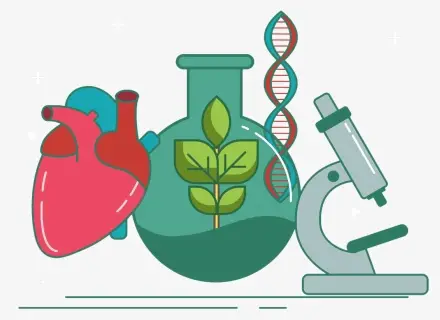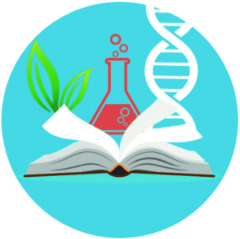For many students, writing a biology research paper can seem like a daunting task. They want to come up with the best possible report, but they don’t realize that planning the entire writing process can improve the quality of their work and save them time while writing. In this article, you’ll learn how to find a good topic, outline your paper, use statistical tests, and avoid using hedge words.

Finding a good topic
The first step in writing a well-constructed biology research paper is choosing a topic. There are a variety of topics to choose from within the biological field. Choose one that interests you and captures your attention. A compelling topic motivates you to work hard and produce a high-quality paper.
While choosing a topic, keep in mind that biology research is time-consuming and requires extensive research. For this reason, choosing a topic that piques the interest of the reader is crucial. In addition to this, you should choose a topic that is appropriate for the type of biology paper you need to write. After all, you do not want to bore the reader with an inane paper.
A good biology research paper topic should be well-supported by solid scientific evidence. Select a topic only after thorough research, and be sure to include steps and references from reliable sources. A biological research paper topic can be an interesting journey into the world of nature. You could choose to research the effects of stress on the human body or investigate the biological mechanisms of the human reproductive system.

Outlining your paper
The first step in drafting a biological research paper is to create an outline. This is meant to be a roadmap that helps you understand and visualize the subject. An outline can help you avoid common writing mistakes and shape your paper into a serious piece of work. The next step is to gather information about the subject that will support your main idea.
Once you have a topic, you can start writing your outline. Outlines should include at least one idea, a brief introduction, and a conclusion. The introduction, ideas, and conclusion should be numbered in the order you plan to present your information. The main ideas are generally a collection of facts and figures. For example, in a literature review, these points might be chapters from a book, a series of dates from history, or the methods and results of a scientific paper.
When writing a biological research paper, you should use scholarly sources. While there is a lot of misinformation on the internet, it’s best to stick to academic essay writing service to get the most accurate information. Most libraries allow you to select a peer-review filter that will restrict your search results to academic journals. It’s also helpful to be familiar with the differences between scholarly and popular sources.
Using statistical tests
Using statistical tests when writing a biological paper requires that you make certain assumptions about the results you are describing. The most common statistical tests are parametric tests that are based on assumptions about conditions or parameters. About 22% of the papers in our review reported violations of these assumptions, and such violations can lead to inappropriate or invalid conclusions.
Statistical tests are important in biological research because they allow researchers to determine if their data is statistically significant or not. The power of these tests depends on the size of the dataset. Larger datasets produce more significant results. The power of these tests also depends on the assumption of independence between measurements. This is important because the results can be different if there are duplications or different levels of replications.
Hypothesis tests are useful in evaluating experimental data. They identify differences and patterns in data. They are useful tools for structuring biological research.
Avoiding hedge words
Hedge words are phrases or words used to express uncertainty in a scientific paper. They can help writers avoid making inaccurate claims while still being respectful of the reader’s opinion. However, writers must be careful to avoid using too many hedges.
Listed below are a few guidelines to help you avoid these words:
- Hedge words shift the burden of responsibility from the writer to the reader.
- Hedge words can be a sign of uncertainty or overstatement. They can also be used to limit the scope of an assertion. They also convey an opinion or hypothesis. When choosing a hedging strategy, be careful not to use words such as “no data” or “unreliable.” These words can convey a degree of uncertainty and imply that the findings cannot be confirmed.
The use of hedge words is common in academic writing. However, they hurt your audience. It is a linguistic strategy that writers use as a way to reassure readers. The goal is to guide readers and make them feel comfortable with the idea that the author does not know all the answers.
Choosing a format
Biological research papers have different formats, and you should choose one that suits the nature of your paper. It should be based on credible and peer-reviewed sources. The best sources to use for biology papers are books, specialized journals, and databases. Avoid personal blogs, social networks, and internet discussions, as these are not suitable for a research paper.
Biology research papers focus on a specific issue and present different arguments in support of a thesis. Traditionally, they are based on peer-reviewed sources, but you can also conduct your independent research and present unique findings. Biology is a complex field of study. The subject matter varies, from the basic structure of living things to the functions of different organs. It also explores the process of evolution and the life span of different species.
Formatting your bibliography
When writing a biological research paper, the format of your bibliography is crucial. It should follow a standardized citation style such as the “Author, Date” scientific style. The format should be arranged alphabetically by author, and you should use numbered references to indicate key sources.
Reference lists must be comprehensive and contain enough information to enable readers to find the sources themselves. Although the format is not as important as completeness, it can help readers quickly identify the authors and sources. Bibliographies are usually reverse-indented to make them easier to find.
In-text citations should include the author’s last name, preferred name, and the page number. Usually, authors do not separate their surname and year of publication. In addition, you should also include the location, which is usually the publisher’s office.
If a work has more than four authors, you should list up to ten in the reference list. The first author’s surname should be used, followed by “et al.” Likewise, you should list more than ten authors in the reference list.
When writing a biological research paper, it is important to ensure that your bibliography is formatted properly. When you write the title, you should use boldface and uppercase letters. The title should also be focused, not too long or too short. It should take one or two lines and all text should be double-spaced. You should also type the author’s name after the title. Don’t forget to indicate the location of your research as well as the date you submitted the paper.





